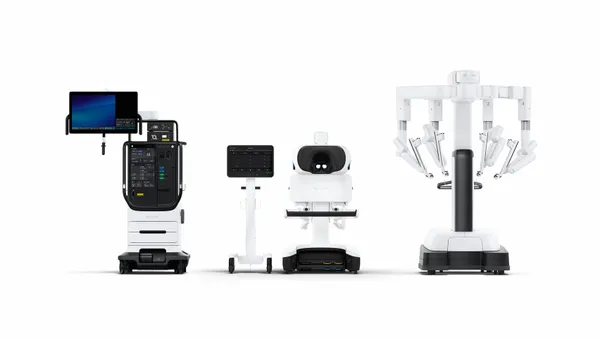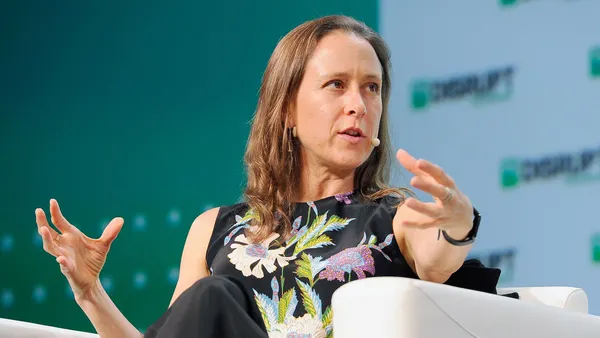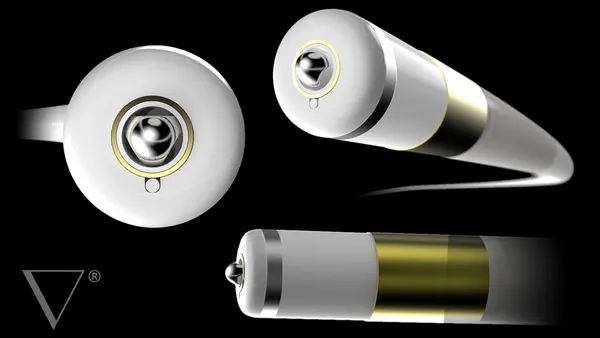Dive Brief:
- Medtech industry efforts to convince CMS to effectively boost payment for device-based opioid alternatives in the agency's Hospital Outpatient Prospective Payment System proposed rule appear to have fallen flat.
- Industry efforts relied on surveys, reports, studies and anecdotal evidence to pitch the agency to make separate payments or a higher ambulatory payment classification assignment for services rendered. But CMS jettisoned the efforts, saying the evidence the industry submitted was plagued by potential conflicts of interest, inadequate sample sizes and lack of peer review.
- The device industry plans to appeal CMS' decision in comments on the proposed rule, DeChane Dorsey, AdvaMed vice president of payment and healthcare delivery policy, told MedTech Dive.
Dive Insight:
The decision by CMS to leave its bundled payment policy unchanged follows a lobbying effort by the device industry to convince the agency financial incentives are tilted toward doctors prescribing opioids, instead of to alternative treatments such as continuous peripheral nerve block and neuromodulation products.
Smiths Medical lobbied the White House in a private meeting in May to separate payment for cPNB from Medicare's bundled payment for outpatient settings. And AdvaMed wrote an April letter to CMS Administrator Seema Verma asking CMS to consider payment changes such as using pass-through payments or new technology ambulatory payment classification assignments for non-opioid alternatives.
In the second quarter of 2019, AdvaMed spent $1.06 million lobbying the government on a variety of issues including medical technology and the opioid crisis. Smiths Group spent $430,000 during the same period lobbying Congress, HHS, CMS and the White House on a variety of issues, including "reimbursement and policy issues related to opioid alternative treatments."
CMS examined if its payment policy discouraged use non-opioid alternatives by looking at recent Medicare claims data. But the agency found consistent or increasing utilization of the products, leading it to conclude changes to the packaged drug policy are unnecessary.
"The results of our review and evaluation of our claims data do not provide evidence to indicate that the OPPS packaging policy has had the unintended consequence of discouraging the use of non-opioid treatments for postsurgical pain management in the hospital outpatient department," the outpatient proposed rule states.
The agency also cited the March Medicare Payment Advisory Commission report to Congress which found "no clear indication that Medicare's IPPS or OPPS discriminates against non-opioids."
"Hospitals that select more expensive options for clinical reasons have tools available to them, such as reducing length of stay, to partially or fully offset these costs," MedPAC wrote.
DeChane told MedTech Dive the trade lobby is hopeful the device industry can convince CMS to reverse course during the comment process for the proposed rule, saying individual members may submit peer reviewed studies, but that it is unclear what data they have.
"We were disappointed to see that CMS was saying that they don't believe that the data substantiating that outpatient packaging is discouraging use of these opioid alternatives," DeChane said. "We would also most likely be encouraging CMS to consider other types of valid data, including probably patient experience data and other forms of data in substantiating the usage of these devices."
CMS may be amenable to changes in its final rule if industry provides high quality evidence that aligns with Medicare claims data. Specifically, the agency wrote in its proposed rule that it wants "evidence-based support, such as published peer-reviewed literature," to show that current payment systems for non-opioid alternatives prevent patient access to care.













